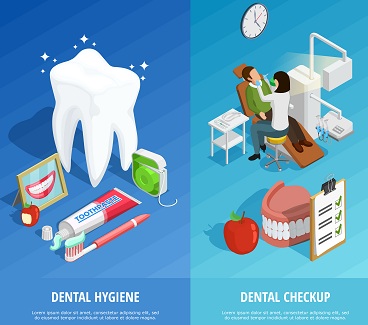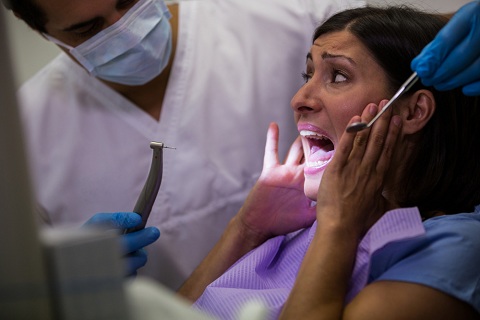Maintaining dental health is crucial for overall well-being. Among the various dental issues, wisdom teeth often stand out due to their unique nature and potential problems. Understanding wisdom teeth and how they affect dental health can help in managing and preventing complications.
What Are Wisdom Teeth?
Wisdom teeth, also known as third molars, are the last set of molars to emerge in the back corners of the mouth. They typically appear between the ages of 17 and 25, a period often referred to as the age of wisdom, hence the name “wisdom teeth.”
Causes of Wisdom Teeth Problems
Wisdom teeth can cause various issues due to several factors. Here’s a look at the common causes:
1. Lack of Space
- Jaw Size: Modern human jaws are often smaller than those of our ancestors, which can lead to insufficient space for wisdom teeth to emerge properly.
- Crowding: Limited space can cause wisdom teeth to grow at odd angles or become impacted, meaning they are trapped below the gum line.
2. Impaction
- Partial Eruption: Sometimes wisdom teeth only partially erupt through the gum, creating a flap of gum tissue that can trap food and bacteria.
- Complete Impaction: Wisdom teeth can remain entirely within the jawbone or gum tissue, leading to pain and potential cyst formation.
3. Misalignment
- Angled Growth: Wisdom teeth often grow at various angles, sometimes horizontally, which can press against adjacent teeth and cause alignment issues.
- Improper Eruption: Misaligned wisdom teeth can damage neighboring teeth or cause bite problems.
4. Infection and Gum Disease
- Pericoronitis: Partially erupted wisdom teeth can create a flap of gum that traps food and bacteria, leading to infection and inflammation.
- Gum Disease: Difficulty in cleaning the far back of the mouth can result in gum disease around wisdom teeth.
5. Tooth Decay
- Hard to Clean: The location of wisdom teeth at the back of the mouth makes them difficult to brush and floss properly.
- Cavities: Accumulation of plaque and food particles can lead to cavities and tooth decay in wisdom teeth.
6. Cysts and Tumors
- Cyst Formation: Impacted wisdom teeth can lead to the development of cysts, fluid-filled sacs that can damage the jawbone and nearby teeth.
- Tumors: Though rare, cysts can develop into tumors that may require surgical intervention.
Symptoms of Wisdom Teeth Issues
1. Swelling and Redness
Swelling and redness around the wisdom teeth are common symptoms of impaction or infection. This can cause the gums to become tender and painful to touch.
2. Jaw Stiffness
Jaw stiffness is another symptom associated with wisdom teeth problems. Difficulty in opening the mouth wide can indicate an issue that needs attention.
3. Bad Breath
Bad breath or an unpleasant taste in the mouth can result from infections around the wisdom teeth. This is due to the accumulation of bacteria and food particles in the affected area.
When Do Wisdom Teeth Erupt?

Wisdom teeth, also known as third molars, are the last set of teeth to develop and emerge in the mouth. Here’s a detailed look at the timing and process of their eruption:
Typical Age Range:
- Ages 17 to 25: Wisdom teeth usually begin to emerge between the ages of 17 and 25. This period is often referred to as the “age of wisdom,” which is where the name “wisdom teeth” originates.
Stages of Eruption:
- Initial Development:
- Pre-teen Years: Wisdom teeth start forming in the jawbone during the pre-teen years, around ages 9 to 12.
- Emergence:
- Late Teens to Early Twenties: The teeth begin to move through the jawbone and gum tissue, typically emerging fully by the early twenties. Some people may experience this earlier or later.
- Completion:
- Mid-Twenties: By the mid-twenties, wisdom teeth have usually either fully erupted or become impacted if there isn’t enough space for them to emerge properly.
Diagnosis and Examination
Dental X-rays
Dental X-rays are essential in diagnosing wisdom teeth problems. They help in determining the position of the teeth and identifying any signs of impaction or other issues.
Physical Examination
A thorough physical examination by a dentist can reveal symptoms of wisdom teeth problems. This includes checking for swelling, tenderness, and signs of infection.
Do Wisdom Teeth Need to Be Removed?
Whether or not wisdom teeth need to be removed depends on several factors. Here’s a detailed look at the considerations for removal:
When Wisdom Teeth Should Be Removed:
- Impaction:
- Pain and Swelling: Impacted wisdom teeth can cause significant pain, swelling, and even infection.
- Cysts and Tumors: Impacted teeth can lead to the formation of cysts or tumors, which can damage the jawbone and surrounding teeth.
- Crowding:
- Misalignment: Wisdom teeth can push other teeth out of alignment, leading to crowding and affecting your bite.
- Orthodontic Work: If you’ve had braces or other orthodontic treatments, wisdom teeth can undo this work by causing teeth to shift.
- Decay and Gum Disease:
- Hard to Clean: Wisdom teeth are located at the back of the mouth, making them difficult to clean properly, which can lead to cavities and gum disease.
- Pericoronitis: Partially erupted wisdom teeth can trap food and bacteria, leading to infection and inflammation.
- Damage to Nearby Teeth:
- Pressure: Wisdom teeth can exert pressure on adjacent teeth, causing damage and increasing the risk of decay and gum disease in those teeth.
When Wisdom Teeth Might Not Need to Be Removed:
- Proper Alignment:
- No Crowding: If there is enough space in your mouth and the wisdom teeth are properly aligned with your other teeth, they may not need to be removed.
- Healthy Condition:
- No Decay or Disease: If the wisdom teeth are healthy, fully erupted, and can be cleaned properly, they may not cause any issues.
- Regular Monitoring:
- Dental Check-ups: Regular dental visits and X-rays can monitor wisdom teeth for potential problems, catching issues early before they become serious.What Is the Removal Process Like?
Removal is usually a straightforward procedure done by a dentist or oral surgeon. It often involves:
- Local Anesthesia: To numb the area around the tooth.
- Sedation: If multiple teeth are being removed or if the patient is anxious.
- Extraction: The dentist will cut the gum tissue and remove the tooth, sometimes in pieces if necessary.
Preventive Measures for Dental Health

Regular Dental Check-Ups
Regular dental check-ups are vital for monitoring the health of your teeth and gums. Early detection of wisdom teeth issues can prevent complications.
Proper Oral Hygiene Practices
Maintaining good oral hygiene is essential. Brushing twice a day, flossing, and using mouthwash can help keep your teeth and gums healthy.
Healthy Diet for Strong Teeth
A diet rich in vitamins and minerals supports dental health. Foods high in calcium, phosphorus, and vitamin D are particularly beneficial for maintaining strong teeth.
Importance of Wisdom Teeth Monitoring
Even if your wisdom teeth are not causing immediate problems, regular monitoring is important. This helps in detecting potential issues early on.
Avoiding Dental Complications
Taking preventive measures and addressing wisdom teeth problems promptly can help avoid long-term dental complications, such as cysts or damage to adjacent teeth.
FAQs About Wishdom Teeth
Wisdom teeth can be both good and bad. They are beneficial if they emerge properly without causing any issues, as they add to the number of molars you have for chewing. However, they are often problematic due to lack of space in the jaw, leading to impaction, crowding, infection, and other dental issues. In many cases, removal is recommended to prevent complications.
Wisdom teeth can be painful, especially if they are impacted, infected, or causing crowding. Pain is a common symptom when these teeth do not have enough room to emerge properly. If you experience pain, it is important to consult with a dentist to determine the best course of action.
Females, like males, typically get their wisdom teeth between the ages of 17 and 25. However, the exact timing can vary from person to person. Regular dental check-ups can help monitor the development of wisdom teeth during this period.
Yes, the presence and development of wisdom teeth can be influenced by genetics. Some people may not develop wisdom teeth at all, while others may have one, two, three, or all four. Additionally, genetic factors can affect the size of the jaw and the likelihood of impaction.
Wisdom teeth are not inherently more powerful than other molars. They serve the same function as other molars, which is to grind and chew food. However, their position at the back of the mouth can make them harder to clean, which might lead to dental issues. Their emergence and potential complications often necessitate removal.
Conclusion
Wisdom teeth can pose various challenges to dental health. Understanding these issues, recognizing symptoms early, and seeking appropriate treatment are key to maintaining a healthy mouth. Regular dental check-ups and good oral hygiene practices are essential in preventing and managing wisdom teeth problems



